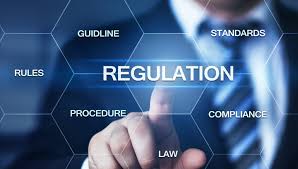Navigating Regulatory Changes, The Impact on Global Procurement and Strategies to Adapt
Global procurement operations are increasingly affected by a complex web of regulations that span trade policies, environmental standards, data protection laws, and labour practices. These regulations, while essential for maintaining ethical standards and sustainability, pose significant challenges for procurement professionals. Understanding and navigating these regulatory changes is crucial for maintaining compliance, optimizing supply chains, and achieving strategic objectives. This article delves into the latest regulatory changes affecting global procurement and provides strategies to adapt effectively.
Trade Regulations and Geopolitical Tensions
Trade regulations and geopolitical tensions significantly influence global supply chains. Changes in trade policies can disrupt supply chains, increase costs, and necessitate shifts in sourcing strategies.
U.S.-China Trade War
The U.S.-China trade war, marked by increased tariffs on various goods, has forced companies like Apple to diversify their supply chains. To mitigate the impact of tariffs, Apple has shifted some of its production from China to other countries such as Vietnam and India. According to the Harvard Business Review, these adjustments have helped Apple maintain production efficiency despite geopolitical tensions.
Strategies to Adapt
· Establish relationships with suppliers in different regions to reduce dependency on any single country. This strategy helps mitigate risks associated with geopolitical tensions and trade tariffs.
· Stay informed about changes in trade policies and tariffs to anticipate potential disruptions. Use this information to adjust procurement strategies proactively.
Environmental Regulations and Sustainability
Environmental regulations are becoming stricter worldwide, driven by initiatives such as the European Union’s Green Deal, which aims to make Europe climate-neutral by 2050. These regulations impact procurement practices, requiring companies to adopt sustainable sourcing methods and reduce their carbon footprint.
European Union’s Green Deal
The European Union’s Green Deal introduces stringent regulations on carbon emissions, waste management, and sustainable sourcing. Companies like Unilever have responded by committing to sustainable procurement practices, such as sourcing 100% of their agricultural raw materials sustainably. According to the Financial Times, these initiatives have enhanced Unilever’s brand reputation and ensured compliance with EU regulations.
Strategies to Adapt
· Implement policies to source materials from environmentally friendly suppliers. This includes evaluating suppliers based on their environmental impact and sustainability practices.
· Invest in technologies and processes that minimize carbon emissions and waste in the supply chain. For example, incorporating renewable energy sources and improving energy efficiency in logistics operations.
Data Privacy and Security Regulations
With the rise of digital procurement, data privacy and security have become critical concerns. Regulations such as the General Data Protection Regulation (GDPR) in Europe require companies to implement stringent data protection measures.
Microsoft’s Compliance with GDPR
Microsoft has taken significant steps to comply with GDPR, ensuring that their procurement processes align with data privacy requirements. This includes implementing robust data protection measures and conducting regular audits. According to the Journal of Data Protection & Privacy, Microsoft’s compliance strategy has enhanced their data security and built trust with stakeholders.
Strategies to Adapt
· Ensure that all procurement-related data is securely stored and processed in compliance with relevant data privacy regulations. This involves using encryption, access controls, and secure data storage solutions.
· Regularly review and audit data protection practices to ensure ongoing compliance with regulations like GDPR. This helps identify and address potential vulnerabilities.
Labor and Human Rights Regulations
Global procurement must also adhere to labour and human rights regulations to ensure ethical sourcing and fair labour practices. Non-compliance can lead to legal penalties and damage to the company’s reputation.
Nike’s Ethical Sourcing Initiatives
Nike has implemented strict labour and human rights standards across its supply chain. This includes regular audits of suppliers and collaboration with non-governmental organizations (NGOs) to improve working conditions. Forbes reports that Nike’s initiatives have enhanced their brand reputation and ensured compliance with international labour standards.
Strategies to Adapt
· Regularly audit suppliers to ensure compliance with labour and human rights standards. Use these audits to identify and rectify any issues related to working conditions and fair labour practices.
· Work with NGOs and industry groups to improve labour practices and promote ethical sourcing. This collaboration can provide valuable insights and resources to enhance supplier compliance.
Regulatory changes significantly impact global procurement practices, necessitating continuous adaptation and compliance. By diversifying supplier bases, adopting sustainable practices, ensuring data privacy, and upholding labour standards, companies can navigate these changes effectively. Leading firms like Apple, Unilever, Microsoft, and Nike exemplify how proactive strategies can ensure compliance and optimize procurement operations in a rapidly changing regulatory landscape.
#IndustryNews #RegulatoryChanges #GlobalProcurement #Compliance #SustainableSourcing


